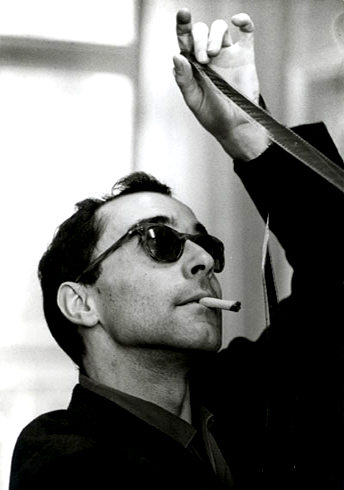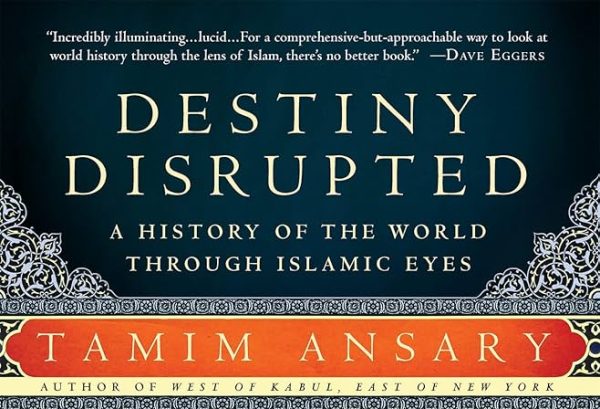Jean-Luc Godard: a revolutionary in film and in life, 1930-2022

“Jean-Luc Godard” by Père Ubu is licensed under CC BY-NC 2.0. To view a copy of this license, visit https://creativecommons.org/licenses/by-nc/2.0/?ref=openverse.
French-Swiss filmmaker Jean-Luc Godard died Sept. 13 at the age of 91. You may not know his name, but your favorite director does, as he helped change the face of film in the 20th century. A life-long rebel, he chose to die by assisted suicide on his own terms, rather than letting death sneak up on him in old age.
His 1960 crime drama “Breathless” is widely considered one of the greatest films of all time, and without its groundbreaking use of the “jump cut,” modern action films could not exist. Its naturalistic style captured its subjects as if giving a candid peek into their lives, rather than capturing a performance.
A man of ideas and not just an artistic visionary, Godard was a witness and participant in the turbulent 1960s, capturing the mood of the new generation of French youth struggling with growing up in the aftermath of World War II. Class struggle, decolonization and the sexual revolution — Godard tackled them all, and saw his task not just as creative, but as helping to destroy the old “bourgeois culture.”
His 1969 film “British Sounds” spoke for the man himself with its opening words: “The bourgeoisie created a world in its image. Comrades, let us destroy that image.”
Godard argued that the main problem with cinema — American cinema especially — is that it does not have a subject, only a story. The film is not built around meaning, it is based around an aesthetic, or a specific actor, with meaning being only a secondary concern. Godard operated very differently, gaining a reputation for improvising scenes and dialog on the spot. What he wished to get across was content, and not just form. This made him a difficult person to work with, but the results speak for themselves.
This does not, however, mean that his films were not innovative in their techniques. Part of an artistic movement that would come to be known as the “French New Wave,” naturalism was key to Godard’s style, but it was a realism tinged with the absurd. Scenes that could be ripped from real life, punctuated by bursts of color, motion and sound. A quasi-documentary style captures its subjects as if they are real people, but at the same time they are slightly larger than life, and something always seems slightly unusual.
He once referred to the protagonists of one of his films as “children of Marx and Coca Cola.” Perhaps he might be called the “child of Mao Zedong and André Breton”.
When Parisian workers and student radicals led an uprising against the conservative government of Charles de Gaulle in May 1968, Godard and a small number of other filmmakers successfully shut down the Cannes Film Festival in solidarity with the movement. Godard himself was arrested while participating in the insurrectionary movement.
His ideological commitment to Marxism was not a surprise to anyone, nor was it unique among French filmmakers, but Godard managed to combine his revolutionary commitment with a potent sense of storytelling that few others were able to replicate. Where many ideologically motivated artists might have fallen into shallow agitprop, the mass movement energized Godard’s creativity, rather than pushing it aside.
His 1967 “La Chinoise,” a film following Maoist student radicals hoping to bring down the government through terrorism, unambiguously sides morally with its protagonists, but they are portrayed as flawed human beings, with their flaws being the reason for their design’s undoing.
Godard believed in the potential of the revolutionary youth around him, but he did not hide their imperfections, and he did not make a virtue of their mistakes.
The U.S. of the current day is not the Paris of 1968, but we’ve just gone through a historic pandemic, and a mass movement against police brutality where police stations were burned down, with a large swathe of the population sympathizing to varying degrees with the movement. Labor unions are once again making a comeback, with young workers playing the dominant role.
We’re not in 1968 Paris, but occasionally, it seems like you can almost smell the teargas and hear the shouts from the barricades. Times of social foment are almost always times of artistic foment, and there has been no shortage of material for the next generation of artists and filmmakers who, picking up the tools left to them by Godard and other great artistic masters, will tell the stories of new generations and their place in a changing world.
Christopher Hill can be reached at [email protected] or @Commiechu on Twitter.







